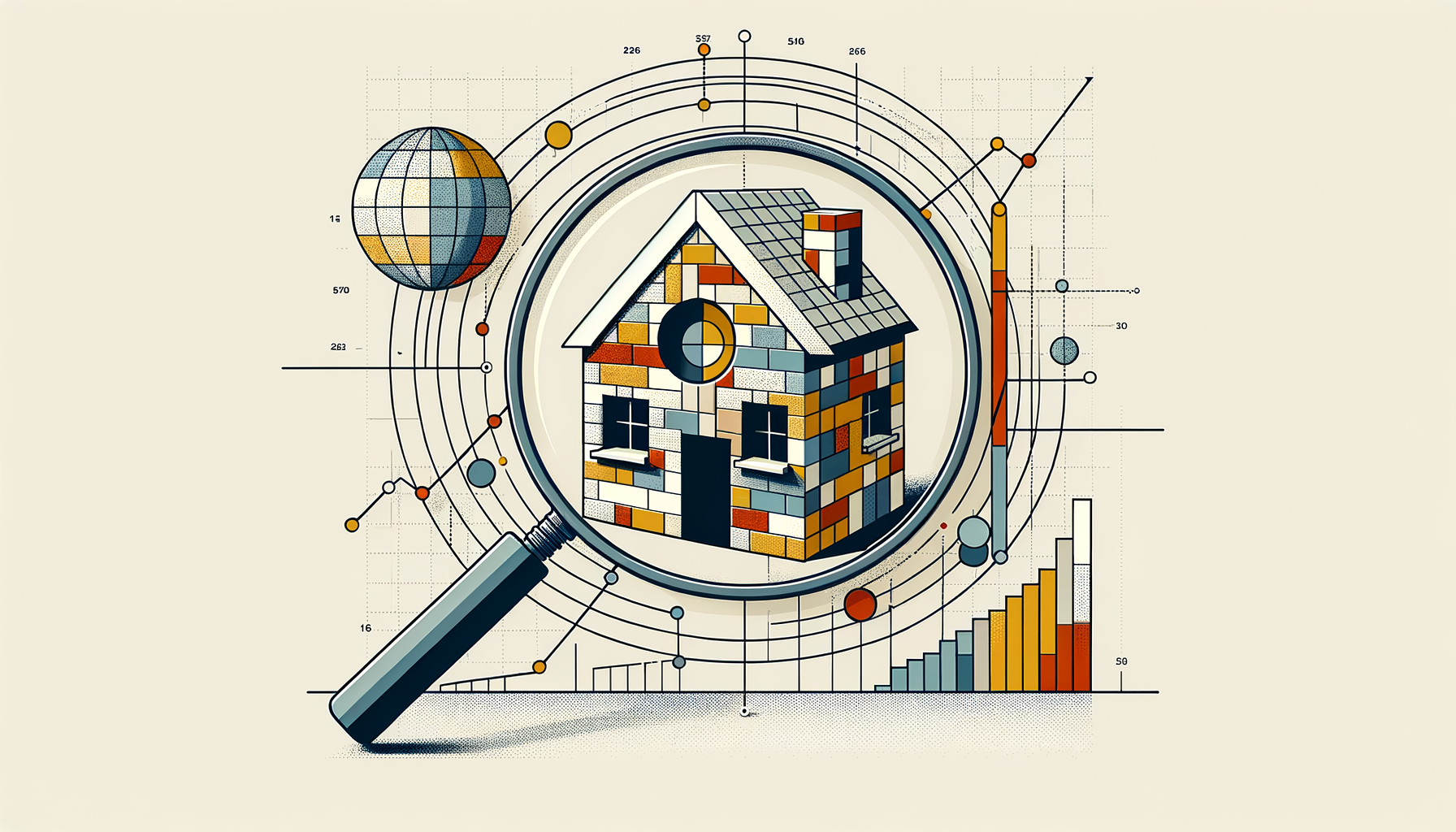“Exploring the Recent Trends and Dynamics of Mortgage Rates: An Analysis”
Home loans, more specifically, mortgage rates, are often the backbone of an economy, reflecting the state of the country’s monetary policy, inflation, and the overall economy. They are an essential variable in the real estate market and significantly influence home-buyers’ decision-making. Here we delve into the dynamic world of mortgage rates, tracking changes and understanding their impact. We look in-depth at the recent happenings, guiding prospective borrowers, and anyone interested in finance and real estate.
To begin with, it is important to understand the fundamental drivers of mortgage rates in the real estate market. There’s a strong connection between mortgage rates and bond markets. The bond market, separated into various segments, serves different investment needs. Here, we focus on a critical sub-section, the Mortgage-Backed Securities (MBS). MBS is an amalgamation of various mortgage loans bundled together and sold to investors. It’s the ups and downs in the price of MBS on Wall Street that greatly influence and modulate the mortgage rates.
Taking a look back at the recent trajectory of mortgage rates, they have been on an incline, a trend that has many anxious. Stock prices and bond yields have mainly been rising recently, creating ripples felt in the mortgage market. The shifting prices and yields have affected the value of MBS, thus impacting mortgage rates. Therefore, this relationship between stocks, bonds, and mortgage rates is essential to understand the backdrop of the current financial environment.
Also, one must comprehend the role of inflation and gauge its influence on mortgage rates. The general understanding is straightforward: higher inflation rates equate to higher mortgage rates and vice versa. Hence, any news or data hinting at increasing inflation will generally have a bearish effect on bond trading. As these concerns adversely impact MBS prices, this chain reaction will translate into a hike in mortgage rates.
It would be remiss not to consider the global scenario while discussing the rise in mortgage rates. Various geopolitical factors and international events can lead to a sudden surge in volatility within global markets, eventually finding its way to impact mortgage rates. One of the recent challenges confronting the global economy is Russia’s geopolitical tension. Dramatic situations like these can cause quick fluctuations in markets worldwide, hence impacting mortgage rates too.
Now that we have examined the implications of bonds, stocks, inflation, and geopolitics, it’s time to focus on the prime mover of the economy – the Federal Reserve. The Fed’s monetary policy decisions exert a profound effect on the economy, including mortgage rates. When the Federal Reserve decides to decrease the fed funds rate, banks, in turn, typically lower the interest rates on their products, including mortgages. Similarly, if the Federal Reserve raises the fed funds rate, banks are likely to hike mortgage rates as well. Due to the increased fear of hike in policy rates, it has undoubtedly led to some upward movement in mortgage rates.
When it comes to understanding the trajectory of mortgage rates and their effect on the housing market, keep in mind that an upward trend in mortgage rates can deter home buyers, affecting housing demand. On a brighter note, many experts believe that the housing market remains strong. Even though mortgage rates are climbing, the demand for housing is still pervasive.
In a climate of increasing mortgage rates, a savvy homebuyer or homeowner should consider multiple factors. If you’re planning on acquiring a mortgage, consider locking in your rate. A rate lock is a lender’s promise to hold a certain interest rate and a certain number of points for you for a specified period while your loan application is processed. However, it’s essential to bear in mind that every financial decision is unique, dependent on an individual’s circumstances and goals.
Broadly speaking, these current circumstances in the financial landscape underline the importance of vigilance and proactive decision-making. Rising mortgage rates, turbulent market conditions, and increasing inflation rates all require mindful planning and strategizing to navigate.
Conclusively, staying observant of current market trends, understanding the relationships and influences on mortgage rates, will lead to informed decisions. Whether you are a potential investor, homebuyer, or simply an interested spectator, understanding these factors helps in comprehending the ebbs and flows in the financial landscape. Current market situations demand an adaptive mindset and practical decision-making skills, ensuring one keeps pace with the dynamic world of mortgage rates.
Often in economic and real estate cycles, the adage “the only constant is change” holds accurate. The market’s dynamism demands individuals and market experts alike to keep evolving their financial strategies. With an open mind and eye on the market, one can make the most informed decisions, no matter if you’re a potential homebuyer or an investor. Remember, understanding mortgage rates is crucial to navigating the financial world. With proper planning, foresight, and informed decisions, one can remove much of the uncertainty tied to this challenging yet exciting world of finance and continue one’s journey towards achieving financial goals.

